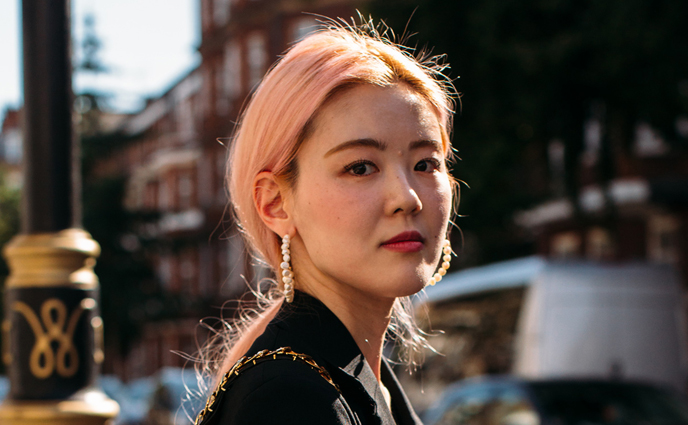To go along with being another barrier against sun damage, vitamin C aids in the prevention of redness, aging and the formation of brown spots — provided it is applied prior to sun exposure, reports Doyle.
Similarly, topical vitamin C has been shown to help improve hyperpigmentation by inhibiting melanin formation, according to David Lortscher, board-certified dermatologist and CEO of Curology. It also may help with rebuilding skin's structure by stimulating collagen production, thus reducing fine lines and wrinkles.
To be clear, though vitamin C is a superpower antioxidant, it is not a replacement for sunscreen. For example, Dr. Robyn Gmyrek MD, board-certified dermatologist at Park View Laser Dermatology, specifically tested the SkinCeuticals C E Ferulic with 15% L-Ascorbic Acid, $166. It showed that the vitamin C provided a SPF of 8 after four applications and with continued use.
"This level of protection is helpful but is not nearly enough sun protection," she says. (And the same may not even be true about other vitamin C products.)
Gmyrek continues, "To truly protect yourself from the harmful rays of the sun, SPF 30 or more is needed to protect yourself from ultraviolet B rays." Additionally, the sunscreen must be labelled "broad spectrum" protection to ensure you're getting protection from ultraviolet A rays (UVA) and ultraviolet B rays (UVB).
Having protection from UVA rays is critical because they penetrate even deeper than UVB rays. UVA rays can go through window glass and they contribute to premature skin aging and skin cancer, according to Gmyrek. UVB rays are the ones we most strongly associate with the sun because they burn skin.
Bottom line: "It's important to remember that vitamin C should not replace your sunscreen, but rather provides additional protection for your skin against ultraviolet damage when added to your regimen," says Lortscher.
As much as we love a good bulk buy, vitamin C isn't something to purchase in multiple quantities at once, according to Lortscher. It's notoriously unstable and degrades, thus losing effectiveness. An easy way to tell if your product has changed is if the color alters, typically to a yellowish tone.
You're also going to want to scan ingredient lists for "L-ascorbic acid" when picking up a vitamin C serum. "The only form of vitamin C that is a truly effective antioxidant and sun protectant is L-ascorbic acid," says Imber. "This is the true form of vitamin C." He states that most vitamin C is used as an additive in the ester form because it is easy to compound, however, it's marginally effective. Additionally, Imber cautions not to confuse sunscreens with added vitamin C with a vitamin C serum. The Youth Corridor Ultimate Antioxidant C Boost Serum, $195, lists "L-ascorbic acid" as an ingredient.
Another factor? Percentage. Gaul says that vitamin C is found to be most effective in the five percent to 20 prevent range with a pH of under 3.5. The Protocol Vitamin C Superserum, $72, has 10 percent ascorbic acid and a pH of 3.46. Imber says that 15 percent L-ascorbic acid is "the preferred concentration."
Some might think that ingesting vitamin C might offer another layer of defense against sun damage. And yes, vitamin C is good for our health, but studies haven't found it to be superior in protecting skin from sun damage. "We are limited in how much [vitamin C] we absorb in our gastrointestinal tracts and how much is delivered to the skin," says Gmyrek. "The only way to get more to the skin is to apply it topically."
Image via Imaxtree
Chemical and physical sunscreens offer benefits when mixed with vitamin C. Lortscher suggests a SPF of at least 30 for both types of sunscreens. Additionally, Wesley says that it's most important to look for a sunscreen that is broad spectrum (effective against UVA and UVB rays).
Doyle, Gaul and Gmyrek prefer physical sunscreens over chemical options. "Both are protective if over SPF 30 and broad spectrum but physical sunscreens containing titanium dioxide or zinc oxide truly prevent the sun's rays from reaching the skin," says Gmyrek. "They provide a physical barrier which blocks the rays from reaching the surface."
Gaul adds that physical sunscreens have much broader, longer-lasting protection against the whole range of UV light.
Image via Imaxtree









